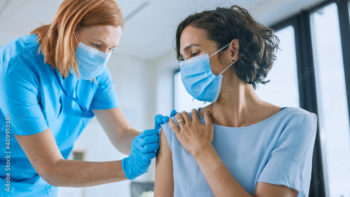Georgia Gov. Brian Kemp is doubling the staffing help that the state is sending to hospitals grappling with shortages of nurses, respiratory therapists and other workers amid the latest COVID-19 surge.
The staffing help expands the supply of temporary workers that the state is providing from 1,300 to 2,800, Kemp told a news conference Monday.
It will be executed through the continuation of the state’s no-bid contract with a private Alpharetta-based staffing firm, Jackson Healthcare and its HWL subsidiary, state officials said. GHN recently reported that the contract, which began with the first wave of COVID in Georgia last year, has brought Jackson $434 million as of July 23.
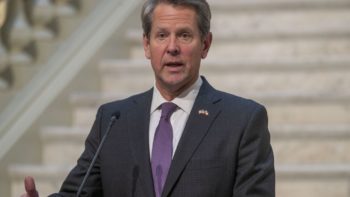
“Virtually every hospital’s most pressing issue was a lack of qualified staff to treat the patients coming through their doors,’’ Kemp told reporters during his first COVID-specific press conference in months. “Through October of this year, the state, coordinated through the Department of Community Health, has already committed $500 million to provide 1,300 staff to 68 hospitals across our state.’’
The additional help would mean “an additional $125 million investment in state-supported staffing of hospital systems in both metro and rural areas through the first week of December,’’ Kemp said, adding that 170 of those temp workers will go directly to rural hospitals.
Staff shortages have increasingly plagued hospitals in the state, with the Georgia Nurses Association saying that Georgia is seeing “the worst nursing shortage’’ in its history. Many RNs have left hospital work for jobs in doctors’ offices, temp positions or retirement during the course of the pandemic.
The added staff will allow 450 more beds in nine regional hospitals to become available to treat patients, the state said.
Kemp also urged Georgians to get vaccinated, saying that more than 90 percent of hospitalized COVID patients in the state haven’t received any shots yet. To encourage state employees to get vaccinated, he said, state offices will be closed Friday, Sept. 3, in advance of Labor Day Weekend.
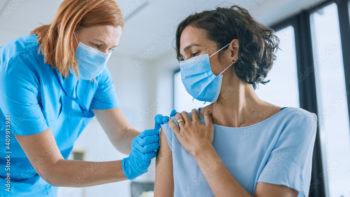
“I am asking all state employees who have not yet gotten their shot to plan on scheduling it on – or before – Friday, September third,’’ Kemp said. “For those who have been vaccinated or get their shot before September third, please take the extra day as a ‘thank you’ and enjoy time with your friends and family.’’
“Georgia will remain open for business,’’ Kemp said, adding that he doesn’t believe in mandates for COVID masks or vaccinations.
He said he would support local school districts’ decisions on how to respond to the pandemic, including a decision to switch to virtual learning.
The South hardest-hit region
Meanwhile, the South as a whole is experiencing soaring COVID infection rates.
Data from the New York Times show Monday that of the nine states with the highest case rate increases over the past 14 days all are in the South. Georgia is ninth, with a 92 percent increase. Deaths from COVID in Georgia rose 34 percent last week.
Georgia, though, experienced a decline in the average number of vaccine doses per day last week, compared with the week before, according to the Washington Post Vaccine Tracker.
School systems across Georgia, meanwhile, are reporting hundreds of students in quarantine and dozens of actual cases.
Ware County schools, in the southeast corner of the state, are shutting down till Sept. 7 as the district reports 76 of its 5,905 students have tested positive for COVID and 679 are “quarantined for possible exposure,” the Macon Telegraph reported. Among the staff of 950, 67 have tested positive and 150 are quarantined, the school said.
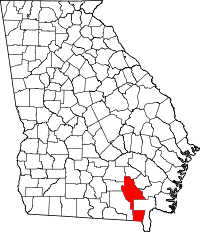
Just 29 percent of county residents are vaccinated in Ware, as compared with the state average of 41 percent.
Other districts, such as Harris County, on the Alabama line near Columbus, have switched from voluntary mask policies to requirements for students to wear face coverings.
In Cobb County in the Atlanta suburbs, hospitalizations are up sevenfold from June, with supplies of critical care and medical/surgical beds “critically low” across all hospitals, Dr. Janet Memark, the Cobb-Douglas Public Health Director, said Friday.
“We have a severe problem on our hands,” Memark wrote in a COVID update.
The rate of COVID-19 infection in Cobb, at 493 cases per 100,000 people, is nearly five times what is considered high transmission (100 cases per 100,000 people).
Cobb is a battleground over the issue of students to wear masks.
The school district has opted not to require masks. In the first two weeks of school, which began Aug. 2, the district reported more than 700 coronavirus cases among students and staff members.
The toll on children
COVID testing has shown high levels of new cases among children, Amber Schmidtke, a microbiologist who studies the virus in Georgia, reported Friday.
Statewide, she said, the rate of positive tests for COVID is highest among children in the K-12 age group. “Those children are vectors of disease, able to transmit to others,’’ Schmidtke said. “And they live in families, sometimes multi-generational ones. So we should all be very alarmed by the increase we are seeing both in cases among these pediatric age groups as well as the state’s decreased ability to identify cases.’’
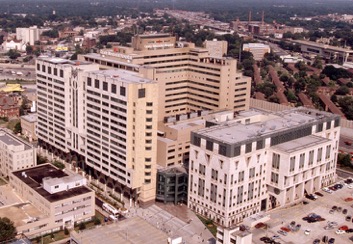
And hospitals continue to fill up with COVID patients and other people needing care.
The state reports that 88 percent of the hospital ICU beds are filled, and that hospitalized COVID patients have jumped past 4,400 statewide.
At Atlanta’s Grady Memorial Hospital, medical staff are now treating 111 COVID patients, up from 100 last week.
More than 40 hospitals reported severe crowding Monday in their ERs.
And Georgia’s projected peak COVID crunch for hospitals isn’t until Sept. 5, according to the Institute for Health Metrics and Evaluation.

